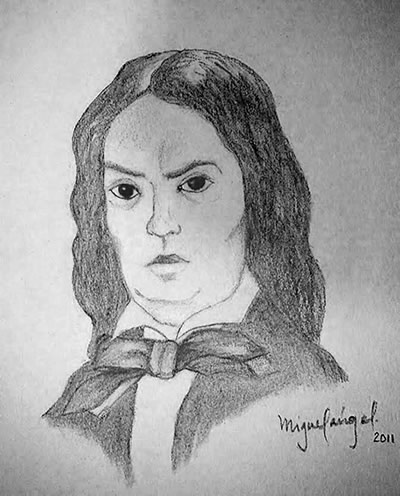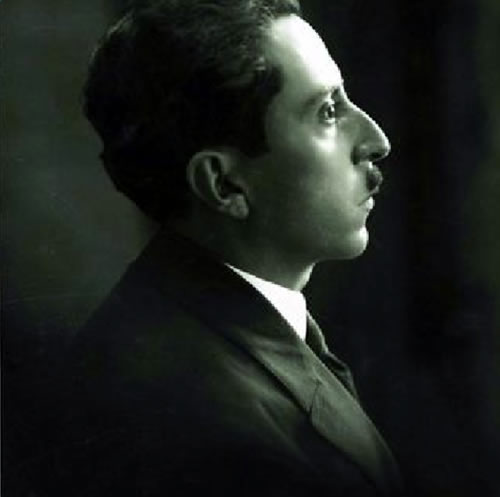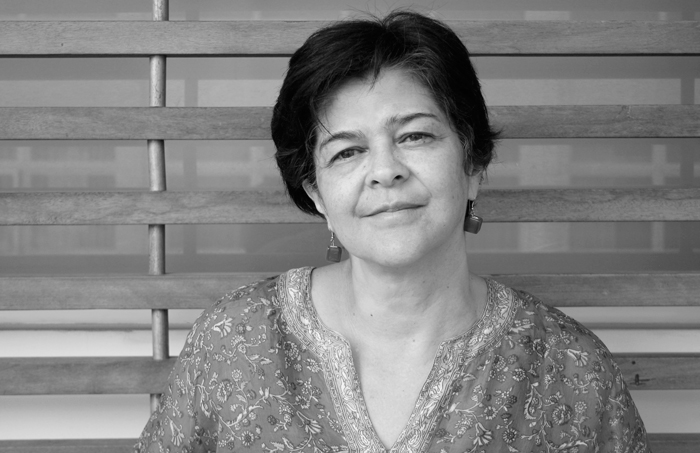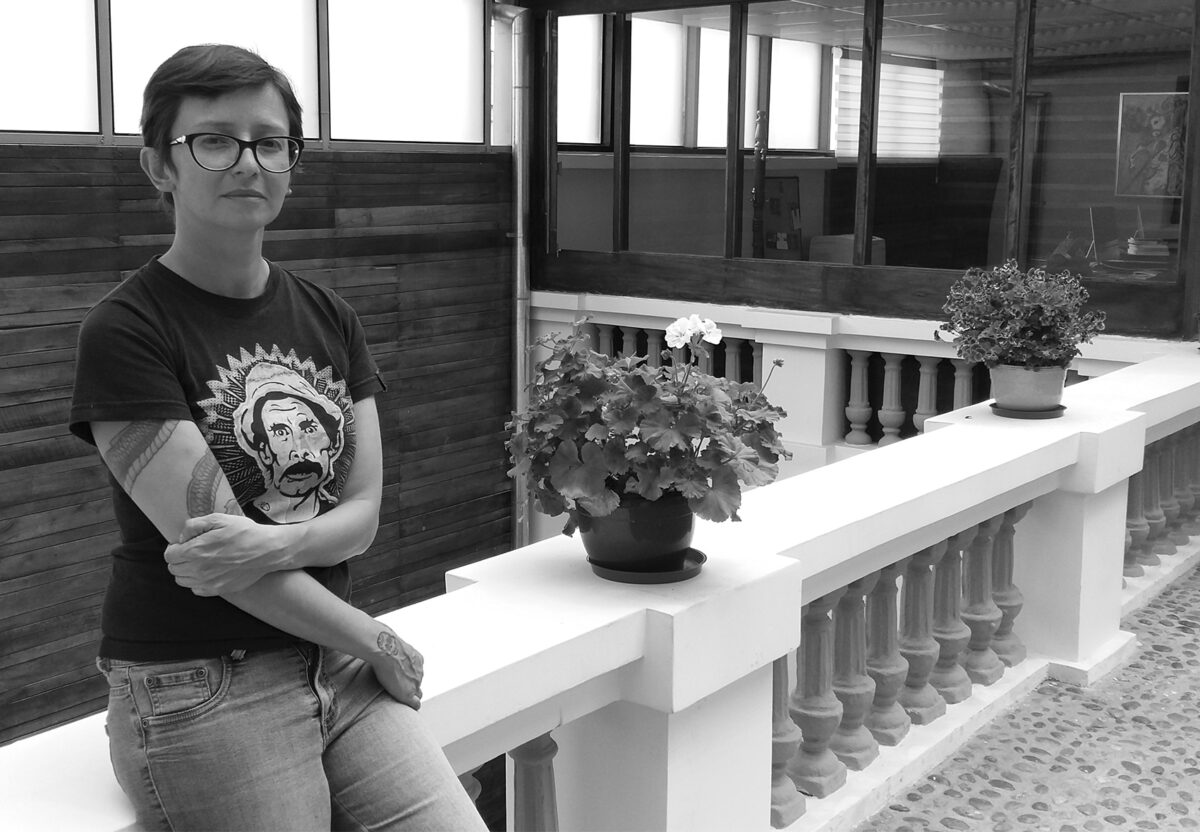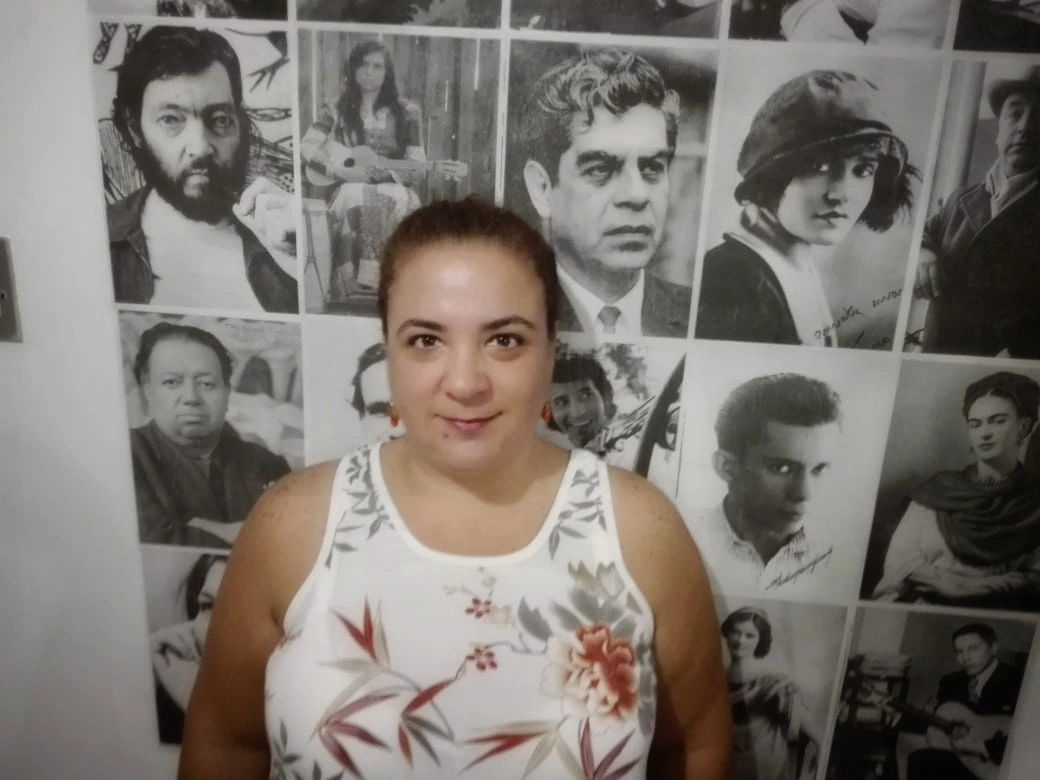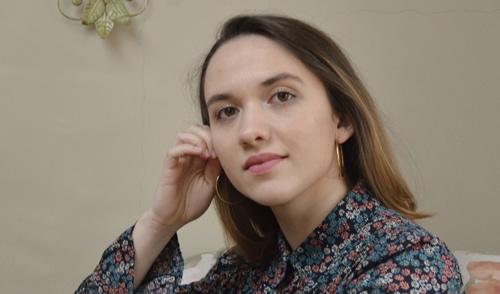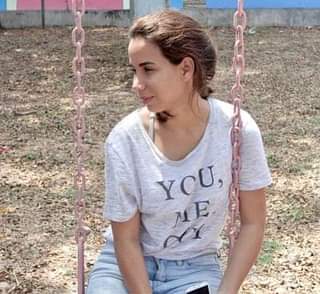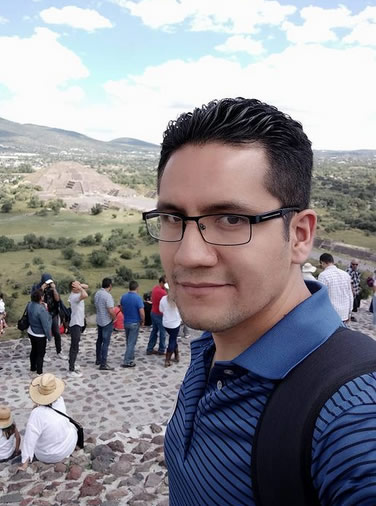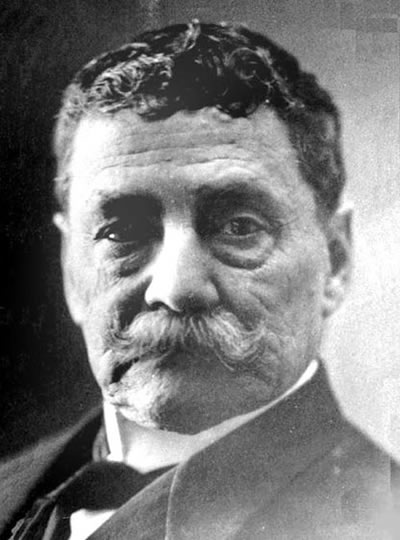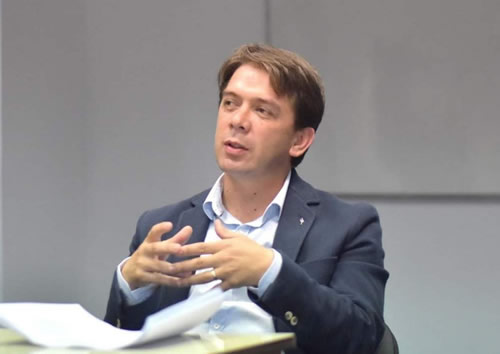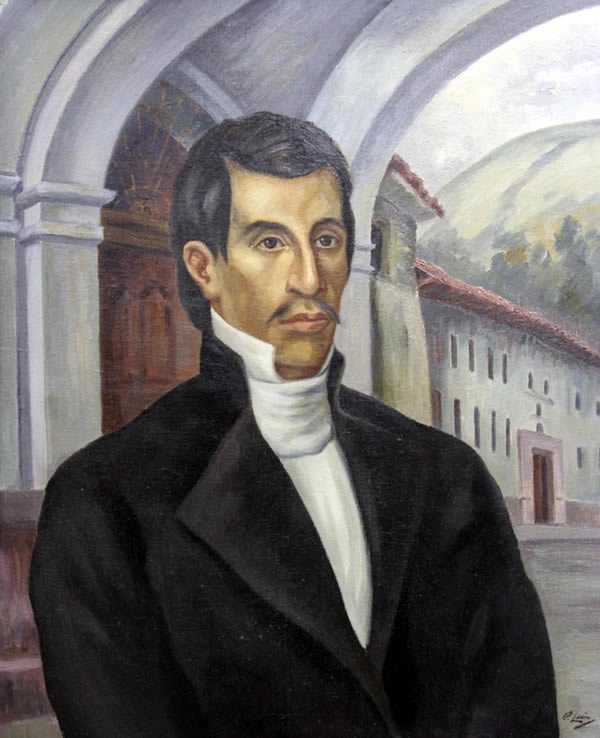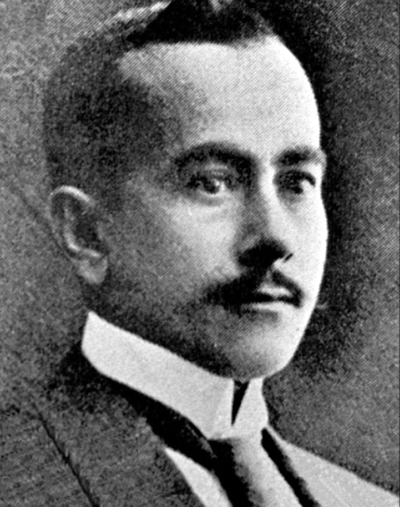Eloy Proaño Donoso (1890-1965) was an Ecuadorian poet. In 1946 he published a poetry collection, “Humo.”
Continue reading “Eloy Proaño”Posts
Luis F. Veloz
Luis F. Veloz (Quito, 1885-1959) was an Ecuadorian poet and sculptor. Along with his friends Aurelio Falconí and Julio E. Rueda, he founded Altos Relieves, one of the first magazines to publish young poets influenced by modernismo in Ecuador. His poems were published in Altos Relieves and the magazine Revista de la Sociedad Jurídico-Literaria. He wrote about art and translated some of the poems of the Italian poet Gabriele D’Annunzio into Spanish. He stopped writing verses to focus on sculpting. In 1918, the Ecuadorian government sponsored him to go the school of Fine Arts in Rome, where he lived for many years. He’s best remembered for his controversial marble statue La Bacante y el Fauno, which was commissioned by the Illustrious Municipal Council of Quito (Ecuador) and created in Rome. Today this statue can be found in the Malecon 2000 in Guayaquil. A collection of his poems and some plays have yet to be published.
Continue reading “Luis F. Veloz”Felix Valencia
Felix Valencia Vizuete (Latacunga, August 31, 1886 – Quito, January 3, 1919) was an Ecuadorian poet often called the “Poet of Sorrow.” During his lifetime he published the books “Cantos de vida y muerte” [Songs of Life and Death] (1911) and “La epopeya de San Mateo” [The Epic of Saint Matthew] (1914). In 1934, his friend, writer and journalist Alejandro Andrade Coello, published “Los poemas del dolor” (Poems of Sorrow), a posthumous collection of his poems. Valencia’s life and work were marked by loneliness, misanthropy and melancholy.
Continue reading “Felix Valencia”Alfonso Moreno Mora
Alfonso Moreno Mora (Cuenca, April 21, 1890 – Cuenca, April 1, 1940) was a modernist poet. He co-founded the magazine Páginas Literarias with his cousin Miguel Moreno Serrano in 1918, becoming its editor in chief. He published poems in this magazine under the pseudonyms Enrique de Rafael and Raedel. He also promoted the work of modernist poets such as Argentina’s Leopoldo Lugones and Nicaragua’s Rubén Darío. Some of the magazines that published Moreno Mora’s poems include Austral, Azul, Proteo, and América Latina. He also contributed to the daily newspapers Diario del Sur, La Nación, and El Mercurio. He was a member of Ecuador’s so-called Decapitated Generation and authored works such as “Visión lírica,” “Epístola a Luis Felipe de la Rosa,” and “Elegías.” On April 1, 1940, shortly before his 50th birthday, Alfonso Moreno Mora passed away in his hometown. Eleven years later, his brother and fellow poet Manuel Moreno Mora published “Alfonso Moreno Mora. Poesía,” a compilation of his literary work.
Continue reading “Alfonso Moreno Mora”Cecilia Velasco
Cecilia Velasco (Quito, May 1965) is an Ecuadorian author of children’s literature and was editor of the Central Bank’s magazine Difusión Cultural. She worked as a columnist for the Quito newspaper Hoy for nearly two decades. She teaches language and literature to children and adolescents. She was awarded the Norma-Fundalectura’s Latin American Prize for Children’s and Youth Literature in 2010. She currently lives in Guayaquil where she works as a teacher at The University of the Arts (UArtes).
Continue reading “Cecilia Velasco”Sandra Araya
Sandra Araya (Quito, 1980) is an Ecuadorian writer. In 2015, she received the La Linares Prize from the House of Ecuadorian Culture and the National Reading Campaign for her novella “La familia del Dr. Lehman.” Her short stories have appeared in magazines such as El Búho, Aceite de perro, Big Sur, Ómnibus, Casapalabras, Letras del Ecuador and Aurora Boreal. Her work has appeared in several anthologies. She has also written for the publications La Barra Espaciadora and Diners. In 2022, she publisher her first collection of short stories entitled, “Salvajes (del día después).” She is currently the editor of Babieca, a film and theater magazine.
Continue reading “Sandra Araya”María Paulina Briones
Mara Paulina Briones Layana (Guayaquil, 1974) is an Ecuadorian writer, editor, and professor. She currently teaches Journalism and Literature, as well as Journalistic Projects, at Casa Grande University and the University of the Arts (both in Guayaquil). She also runs the publishing company Cadaver Exquisito, which she founded in 2012, and has been the director of La Casa Morada, a cultural initiatives company that promotes reading, since 2009. She is featured in the bilingual poetry collection “Lengua me has vencido” (2017). Some of her stories have appeared in the Latin American Culture magazine Guaraguao, as well as the virtual magazines El Otro Lunes and Matavilela from Ecuador.
Continue reading “María Paulina Briones”Camila Peña
Camila Peña (Cuenca, 1995) is an Ecuadorian poet, radio host and ballet dancer. In 2020 her first poetry book “Jardín Transparente,” won the Francisco Ruiz Udiel Hispanic American Poetry Award and will be published by Valparaíso Ediciones. She has a master’s degree in Artistic, Literary and Cultural Studies with a specialty in Comparative Literature, Literary Theory and Rhetoric from the Autonomous University of Madrid. In addition, she is a ballet dancer with 19 years of training and experience in creating artistic projects. She is currently the host of a cultural program on a radio station in Cuenca.
Continue reading “Camila Peña”Carlett Decker Santistevan
Carlett Miroslava Decker Santistevan (Guayaquil, 1996) is an Ecuadorian writer, screenwriter, filmmaker and director. She has a degree in Cinema from the University of the Arts with a mention in directing and screenwriting. Her short stories have been published in online magazines such as Letralia and Extrañas Noches.
Continue reading “Carlett Decker Santistevan”Jorge Tigrero Vaca
Jorge William Tigrero Vaca (Guayaquil, 1986) is an Ecuadorian poet, writer, journalist and university professor. He has published books of poetry, short stories and essays on pedagogy. He is a member of the Organization of Ibero-American States (OEI), an international governmental body for cooperation between Latin American countries in the field of education, science, technology and culture. He is also a member of the Global Network of Writers in Spanish (REMES). Tigrero works as a professor at the Casa Grande University, ECOTEC University and University of the Arts.
Continue reading “Jorge Tigrero Vaca”Roberto Andrade
Roberto Andrade Rodríguez (October 26, 1850 – October 27, 1938) was a politician, historian, author and polemicist. He was a participant in the assassination plot against President Gabriel Garcia Moreno. On August 6, 1875, Garcia Moreno was beaten with a machete while three or four others shot revolvers at him. Andrade landed a deadly shot to Moreno’s forehead. Throughout his life Andrade was persecuted for his polemicist essays and political ideology. “Pacho Villamar,” his semi-autobiographical work from 1910, is widely considered Ecuador’s first political novel.
Continue reading “Roberto Andrade”Carlos Vásconez
Carlos Francisco Vásconez Gomezcoello (Cuenca, May 16, 1977) is an Ecuadorian novelist, short story writer, essayist, columnist and educator who has published short stories and novels since 1999. He is the president of the PEN Center Ecuador and was the president of the Azuay branch of the House of Ecuadorian Culture from 2011-2016. He is the vice-rector and a teacher at Las Pencas Educational Unit in Cuenca, Ecuador. He is also a professor at the School of Language and Literature at the University of Cuenca. He is the director of the newspaper La columna del invertebrado and is part of the Editorial Board of the cultural magazine Arrebol. He has been a columnist for several magazines and newspapers, such as Rocinante, Diners, BG Magazine, Cartón Piedra and La Casa. He has prefaced several anthologies of Ecuadorian short stories and poetry.
Continue reading “Carlos Vásconez”Rommel Manosalvas
Rommel Manosalvas (Quito, 1992) is an Ecuadorian author, booktuber and architect. In 2019 his short story “Disforia” was published in the anthology “Los que vendrán 20-20” by the indie publisher Cactus Pink. In 2020, he became the second “Writing World Cup” champion for his short story “Abuelita,” defeating 5400 competitors from 42 countries. An English translation of his story was published in the Yale Review in 2021. His debut novel “Anatomía transparente” was published in 2022.
Continue reading “Rommel Manosalvas”Eugenio Espejo
Francisco Javier Eugenio de Santa Cruz y Espejo (Royal Audiencia of Quito, February 21, 1747 – December 28, 1795) better known as Eugenio Espejo was an 18th-century Spanish physician, writer, librarian, lawyer, and a pioneering figure in colonial Ecuador. Born in 1747, he was of mestizo origin and became a notable scientist and writer, but his true impact lies in his role as a polemicist and advocate for separatism in Quito. Espejo was the first journalist and hygienist in Quito, using his platform to spread enlightened ideas and critique the lack of education, corruption, and cultural aspects of the colonial authorities. He composed an important treatise on sanitary conditions, showcasing his understanding of microorganisms and their role in disease transmission. Espejo’s satirical works, inspired by the Age of Enlightenment, made him a target for persecution, leading to his imprisonment shortly before his death in 1795. Despite his hardships, Eugenio Espejo is regarded as one of the most important figures in colonial Ecuador and left a lasting legacy as a champion of education, science, and social reform.
Continue reading “Eugenio Espejo”Carlos A. Rolando
Carlos Alberto Rolando Lobatón (Guayaquil, September 13, 1881 – Guayaquil, January 5, 1974) was a doctor, writer and bibliographer. In 1925 Rolando was appointed library director at the University of Guayaquil and also became a numerary member of the National Academy of History. In 1930 he established the Guayaquil Historical Research Center. The National Authors Room of the Municipal Library of Guayaquil bears his name.
Continue reading “Carlos A. Rolando”
